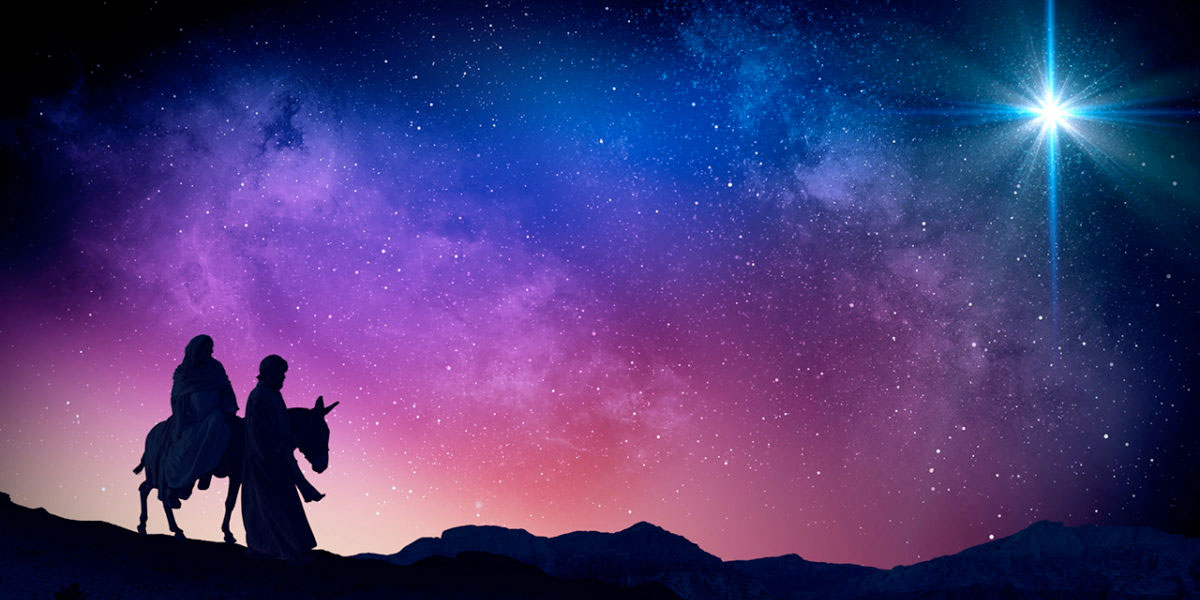
Have a Christward Christmas
By Pastor Bill
For us Christians the Christmas season can come and go like the swell of a shallow wave, or perhaps like a brief starburst of light mixed with festive glitter to tide over the darkest days of the winter. We’re reminded of the name and fact of Jesus Christ, born in Bethlehem’s manger. But the significance of the nativity runs much deeper defined for us by the Apostle John:
“The Word became flesh and made his dwelling among us. We have seen his glory, the glory of the one and only Son, who came from the Father, full of grace and truth” (John 1:14).
The person referred to by John – the Word – is described in the preceding verses of the first chapter of his Gospel with at least three remarkable features.
First, the Word is eternal. His existence did not begin in Bethlehem in 4 B.C. Nor did it begin as far back as creation. On the contrary, in the beginning, when everything created came into being, the Word was already in being, unoriginated, uncaused and independent of any other form of existence. There never was when the Word was not. Therefore, the nativity does not mark the onset of Christ’s existence but the perforation of history by One from eternity past. He was never “a twinkle in his father’s eye,” as we say. Nor was he the outcome of some process of evolution but the intrusion of the Eternal into the existence of humankind. In the words of Cecil Francis Alexander, “He came down to earth from heaven, who is God and Lord of all.”
Secondly, the Word was Creator. Everything was made by him just as everything is actively sustained by him. He conceived and formulated all creation. He spoke it into being, molding and building it with a sovereign artistry. Because the size of the universe is so incredibly vast and amazingly complex, if our hearts are right, we’ll be continually drawn to worship and praise him for the splendor of his greatness. Such worship at Christmastime is sweetened by the thickest irony insofar as the Creator of every forest on the planet was laid in nativity’s wood-hewn manger, a feeding trough for animals. This irony is only eclipsed by the dual purpose served by Calvary’s wooden cross: Rome’s instrument of torture yet our Saviour’s sacrifice of atonement.
Thirdly, the Word was God. This is the core of the Christian faith. Without it there could be no Christmas. But what are we really saying when we call Jesus God? We are ascribing to him the greatest divine title found in the Old Testament. He is Elohim, the God whose name (in the plural form) expresses the most intense and exclusive deity. He is not the totality of God (the Father is God and the Spirit is God) but he is unreservedly God. He is God in his own right, the One whose being makes all other gods not only superfluous but impossible. But we’re also saying that Jesus possesses all the divine attributes of God. He is eternal, omniscient, unchanging, omnipresent, omnipotent and holy in his mercy, righteousness and love. Beyond that, he performs all the characteristic functions of deity: creation, preservation, government and final judgment. But above all, he enjoys every divine prerogative. The glory due to him is precisely the glory due to God. Every knee is to bow. Every heart is to worship. Every tongue must bless him.
Therefore, first and foremost the Church at Christmas is a community of doxology, of Hallelujahs! and Hosannas!, of bowed heads and adoring song. Why? Because the joy and adoration of Christmas is necessarily Christwards.
Who is he in yonder stall
At whose feet the shepherds fall?
’Tis the Lord! Oh wondrous story!
’Tis the Lord, the King of glory!
At his feet we humbly fall.
Crown him! Crown him! Lord of all!
Merry Christmas Pastor Bill
